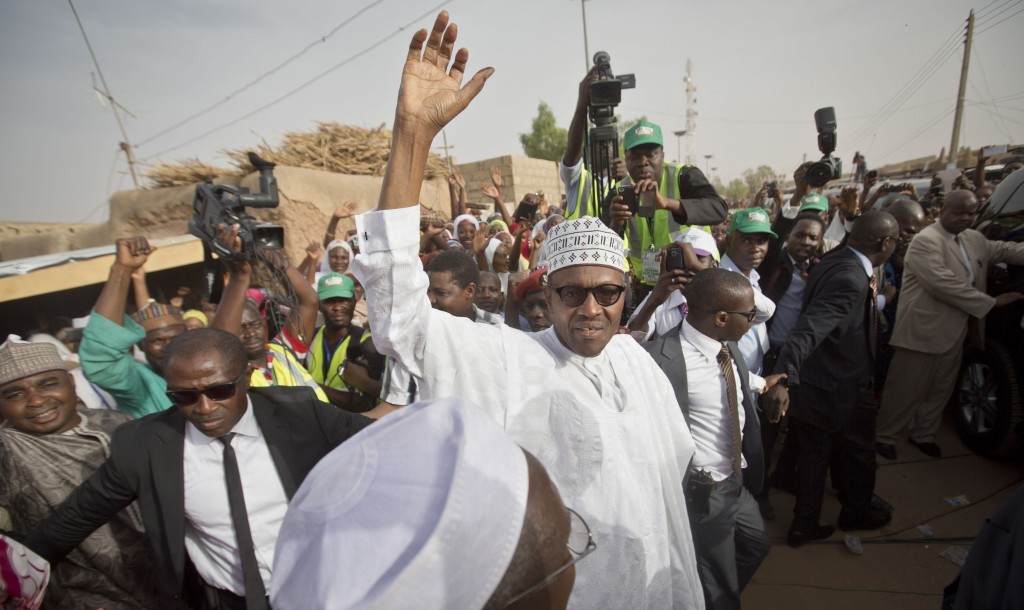
Nigeria’s government said it will boost spending by a fifth in next year’s budget without overstepping borrowing targets, even as oil revenue in Africa’s largest economy is set to fall.
Under a three-year economic plan approved by the cabinet, expenditure will rise to 6 trillion naira ($30.2 billion), Budget and Planning Minister Udoma Udo Udoma told reporters late Monday in the capital, Abuja.
Lawmakers last week authorized an increase of 466 billion naira in this year’s budget of 4.5 trillion naira to pay for fuel subsidies and troops fighting an Islamist insurgency in the northeast.
Africa’s largest oil producer is struggling to cope with a slump in the price of crude, which is the source of 70 percent of government revenue. Economic growth is set to slow to 3.9 percent this year from 6.3 percent in 2014, according to the median estimate of 10 economists surveyed by Bloomberg.
The drop in crude prices has caused slower growth while increasing exchange-rate pressure at a time the outlook for “prices remain pessimistic,” the World Bank said in its report on the Nigerian economy released Tuesday.
While the budget next year will be “expansionist,” the spending plan is based on an oil price of just $38 a barrel because of “uncertainties,” Udoma said. The crude output target is set at 2.2 million barrels a day, he said. The benchmark price in this year’s budget, approved in April, was $53 a barrel.
All the additional expenditure planned for next year will go toward capital projects, such as infrastructure, rather than recurrent spending on government salaries, which has eaten up the majority of Nigeria’s past budgets, he said.
Udoma didn’t say when the budget proposal will be sent to lawmakers for approval.
The government will try to boost its income by increasing revenue from industries other than oil, cutting costs and improving the collection of taxes and fees, said Udoma.
The “level of borrowing that we anticipate and we’re projecting will be well within the maximum that we allow, which is 3 percent of gross domestic product because we want a prudent budget,” Udoma said. He didn’t provide further details about how the budget will be financed.
President Muhammadu Buhari, who won elections in March, said he inherited depleted government coffers and a bureaucracy that multiple probes have blamed for looting billions of dollars of oil revenue.
Vice President Yemi Osinbajo said in an interview in October that the government plans to spend its way out of a slowing economy and that an infrastructure fund will be created with public and private financing.
“Our concern still remains on how the government plans to finance this budget,” Olumide Awe and Seun Olanipekun, analysts at Lagos-based Investment One, said in a research note. “The current low interest rate environment suggests the government may borrow locally to finance the potential deficit.”
The 2016 budget’s projected exchange rate will be the central bank’s official one, which has fixed the naira at about 198 to 199 per dollar since March, despite the unofficial, or parallel market, falling to a record low last week of 253.
The Central Bank of Nigeria, with Buhari’s backing, has choked off supply of foreign exchange to banks and their customers to defend the naira, even as major oil exporters such as Russia and Colombia have let their currencies slide. The restrictions prompted JPMorgan Chase & Co. to remove Nigeria from its local-currency emerging-market bond indexes, tracked by more than $200 billion of funds, in September, triggering a selloff in the nations’ assets.
The naira rose 0.1 percent to 198.54 per dollar at 3:39 p.m. in Lagos, while Nigeria’s benchmark stock index fell 1.1 percent at the market close. The World Bank report said most of the $35 billion of short-term capital flows into Nigeria’s markets witnessed in 2012 and 2013 had left the country.
“Abuja looks set to record a fairly large fiscal deficit next year, which will likely be financed by increased borrowing,” Cobus de Hart, an analyst at NKC African Economics in South Africa, said in a client note on Tuesday. “Authorities may again decide to foray into international debt markets.”
With a low debt-to-GDP ratio, “Nigeria has space to borrow to smooth the necessary fiscal adjustment,” according to the World Bank report. “Investors stand willing to bring considerable investment if they receive positive signals from the government.”
Nigeria also faces the imperative to increase its non-oil revenue taxes, currently at 4 percent of GDP and low compared with 8 percent in Angola, 13 percent in Cameroon and 21 percent in Gabon, according to the report.
The World Bank projects that Nigeria’s economy will grow 3.5 percent this year, increasing to 4 percent next year, then 5 percent in 2017 and reaching 6 percent in 2018.
Recommended for you
